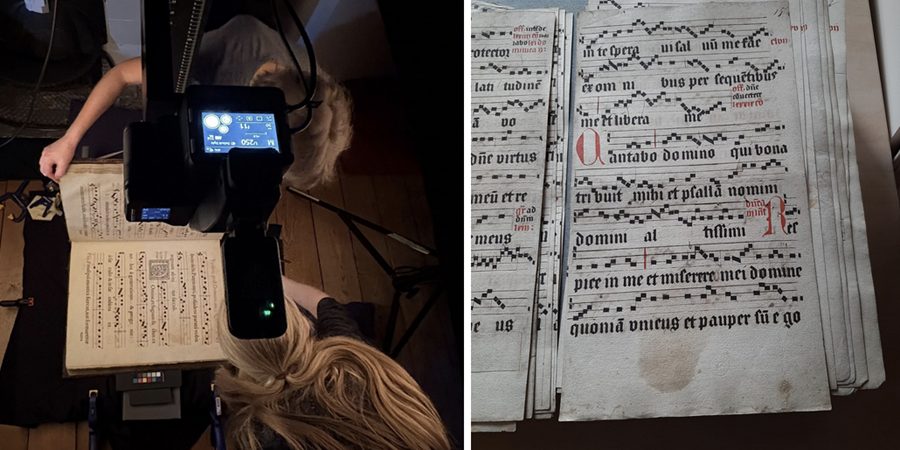Alamire Digital Lab in Museum Plantin-Moretus (encore)

At the end of last month, the Alamire Digital Lab visited the Museum Plantin-Moretus for the second time this year.
Two codices were placed under the camera on this occasion: the Graduale de tempore from 1614 and the Missale Coloniense from 1498. The Gradual was printed by the Roman Medici Press ('Editio Medicaea') and was the result of several decrees issued at the Council of Trent (1545-1563). These so-called Tridentine reforms were put forward as a Catholic response to criticism from the Protestant Reformation. Their aim was to restore a streamlined doctrine within the Catholic Church, which also had an impact on the music heard during Mass. The Italian composers Felice Anerio and Francesco Soriano, who were steeped in the sensibilities of Palestrina's polyphonic church music, undertook the revision of the plainchant corpus and published the results in 1614 and 1615 in two volumes, the first of which is the Graduale de tempore.
The missal from Cologne is an incunabulum—a product of the earliest period of printing history—published in 1498. Its colophon bears the inscription 'expensis...Hermanni Bungart', indicating that it was printed for, or at the expense of, a certain Hermann Bungart.
Both sources are now being further studied by the Alamire Foundation, after which the images will be published with detailed metadata in the Integrated Database for Early Music. The 22 Alamire fragments used as reinforcements for type cases, which were digitized at the museum last May, are now available on the IDEM website.
